Target Zero Read online
Page 2
“Geneva will have to confirm it,” Cicero said quietly, “but if my speculation is correct, we have just unearthed an eight-thousand-year-old strain of smallpox.”
“Eight thousand?” Renault inquired. “I thought you said the settlement was in the late nineteenth century.”
“Ah, I did!” said Cicero. “But the question then becomes, how did they—an isolated nomadic tribe—contract it? In a similar fashion, I would imagine. Digging the ground and stumbling upon something long-since frozen. This strain found in the thawed caribou carcass five months ago dated all the way back to the start of the Holocene epoch.” The older virologist could not seem to take his eyes from the arm jutting from the frozen dirt below. “Renault, fetch the box, please.”
Renault retrieved the steel sample box and set it in the frozen earth near the edge of the hole. He unlocked the four clasps that sealed it and lifted the lid. Inside, where he had stowed it earlier, was a MAB PA-15. It was an old pistol, but not a heavy one, weighing about two pounds fully loaded with a fifteen-round magazine and one in the chamber.
The gun had belonged to his uncle, a veteran of the French Army who had fought in Maghreb and Somalia. The young Frenchman, however, disliked guns; they were too direct, too discriminate, and far too artificial for his tastes. Not like a virus—nature’s perfect machine, capable of wiping out entire species, both systematic and uncritical at the same time. Emotionless, unyielding, and precipitate; all of which he needed to be in the moment.
He reached into the steel box and wrapped his hand around the gun, but wavered slightly. He did not want to use the gun. He had, in fact, grown rather fond of Cicero’s infectious optimism and the twinkle in the older man’s eye.
But all things must come to an end , he thought. The next experience awaits.
Renault stood with the pistol in his palm. He toggled the safety and dispassionately shot the two researchers on either side of the hole, point-blank in the chest.
Dr. Bradlee let out a startled shriek at the sudden, jarring report of the gun. She scrambled backward, covering two paces before Renault fired twice into her. The English doctor, Scott, made a feeble attempt to climb out from the hole before the Frenchman made it his grave with a single shot into the top of his head.
The shots were thunderous, deafening, but there was no one around for a hundred miles to hear them. Almost no one.
Cicero was rooted to the spot, paralyzed with shock and fear. It had taken Renault only seven seconds to end four lives—only seven seconds for the research expedition to become a mass murder.
The older doctor’s lips trembled behind his respirator as he attempted to speak. At long last he stammered a single word: “Wh-why?”
Renault’s icy gaze was stoic, as detached as any virologist would have to be. “Doctor,” he said softly, “you are hyperventilating. Remove your respirator before you pass out.”
Cicero’s breath came ragged and quick, outpacing the respirator’s ability. His gaze flitted from the gun in Renault’s hand, held casually at his side, to the hole in which Dr. Scott now lay dead. “I… I cannot,” Cicero stuttered. To remove his respirator would be to potentially subject himself to the disease. “Renault, please…”
“My name is not Renault,” said the young man. “It is Cheval—Adrian Cheval. There was a Renault, a university student who was awarded this internship. He is dead now. It is his transcript, and his paper, that you read.”
Cicero’s bloodshot eyes widened further. The edges of his vision grew fuzzy and dark with the threat of losing consciousness. “I don’t… I don’t understand… why?”
“Dr. Cicero, please. Remove the respirator. If you are going to die, would you not prefer it to be with some dignity? Facing the sunshine, rather than behind a mask? If you lose consciousness, I assure you, you will never wake up.”
Fingers quivering, Cicero slowly reached up and tugged down the tight yellow hood from over his white-streaked hair. Then he gripped the respirator and mask and pulled it off. The sweat that had beaded on his forehead chilled instantly and froze.
“I want you to know,” said the Frenchman, Cheval, “that I truly do respect you and your work, Cicero. I take no pleasure in this.”
“Renault—or Cheval, whoever you might be—listen to reason.” With the respirator off, Cicero regained enough of his faculties to make a plea. There could be only one motivation for the young man before him to commit such an atrocity. “Whatever it is you are planning to do with this, please, reconsider. It is extremely dangerous—”
Cheval sighed. “I am aware, Doctor. You see, I was indeed a student at Stockholm University, and I truly was pursuing my doctorate. Last year, however, I made an error. I forged faculty signatures on a request form to obtain samples of a rare enterovirus. They found out. I was expelled.”
“Then… then let me help you,” Cicero pleaded. “I-I can sign such a request. I can assist you with your research. Anything but this—”
“Research,” Cheval mused quietly. “No, Doctor. It is not research I am after. My people are waiting, and they are not patient men.”
Cicero’s eyes welled. “Nothing good will come of it. You know that.”
“You’re wrong,” said the young man. “Many will die, yes. But they will die nobly, paving the way for a much better future.” Cheval looked away. He did not want to shoot the kind old doctor. “You were right about one thing, though. My Claudette, she is real. And absence does indeed make the heart grow fonder. I must go now, Cicero, and so must you. But I respect you, and I am willing to grant a final request. Is there anything you would like to say to your Phoebe? You have my word I will deliver the message.”
Cicero shook his head slowly. “There is nothing so important to tell her that I would send a monster like you into her path.”
“Very well. Goodbye, Doctor.” Cheval raised the PA-15 and fired a single round into Cicero’s forehead. The wound frothed as the older doctor staggered and collapsed onto the tundra.
In the stunning silence that followed, Cheval took a moment and, kneeling, murmured a brief prayer. Then he set about his work.
He wiped the gun clean of prints and powder and hurled it into the flowing, icy Kolyma River. Next he rolled the four bodies into the hole to join Dr. Scott. With a shovel and pick, he spent ninety minutes covering them and the exposed, decomposing arm with partially frozen dirt. He disassembled the excavation site, pulling out the stakes and tearing down the procedural tape. He took his time, working meticulously—no one would even attempt to contact the research team for another eight to twelve hours, and it would be at least a full twenty-four before the WHO sent anyone to the site. An investigation would certainly yield the buried bodies, but Cheval was not keen to make it easy on them.
Lastly, he took the glass vials containing the samples from the decomposing arm and carefully slid them, one by one, into the secure foam tubes of the stainless steel box, all the while keenly aware that any single one of them had the power to be staggeringly deadly. Then he sealed the four clasps and carried the samples back to the encampment.
In the makeshift clean room, Cheval stepped into the portable decontamination shower. Six nozzles sprayed him down from every angle with steaming hot water and a built-in emulsifier. Once finished, he carefully and methodically peeled off the yellow hazmat suit, leaving it on the floor of the tent. It was possible that his hairs or spittle, identifying factors, could be in the suit—but he had one last step to perform.
In the back of Cicero’s all-terrain jeep were two rectangular red gasoline canisters. It would take only one for him to reach civilization again. The other he dumped liberally over the clean room, the four neoprene tents, and the canvas canopy.
Then he lit the fire. The blaze went up quickly and instantly, sending black, oily smoke roiling skyward. Cheval climbed into the jeep with the steel sample box and drove away. He did not speed, and he did not look in the rearview mirror to watch the site burn. He took his time.
Imam
Khalil would be waiting. But the young Frenchman still had much to do before the virus was ready.
CHAPTER ONE
Reid Lawson peered through the blinds of his home office for the tenth time in less than two minutes. He was growing anxious; the bus should have arrived by now.
His office was on the second floor, the smallest of the three bedrooms of their new home on Spruce Street in Alexandria, Virginia. It was a welcome contrast to the cramped, boxy closet of a study he had in the Bronx. Half of his things were unpacked; the rest were still in boxes that lay scattered across the room. His bookshelves were constructed, but his books lay stacked in alphabetical order on the floor. The only things he had taken the time to completely build and organize were his desk and computer.
Reid had told himself that today was going to be the day that he finally got it together, nearly a full month after moving in, and finished unpacking the office.
He had gotten as far as opening a box. It was a start.
The bus is never late , he thought. It’s always here between three twenty-three and three twenty-five. It’s three thirty-one.
I’m calling them.
He snatched his cell phone from the desk and dialed Maya’s number. He paced as it rang, trying not to think of all the awful things that could have happened to his girls between the school and home.
The call went to voicemail.
Reid hurried down the stairs to the foyer and pulled on a light jacket; March in Virginia was considerably more favorable than New York, but still a bit chilly. Car keys in hand, he punched in the four-digit security code on the wall panel to arm the alarm system to “away” mode. He knew the precise route the bus took; he could backtrack it all the way to the high school if he needed to, and…
As soon as he pulled the front door open, the bright yellow bus hissed to a stop at the end of his driveway.
“Busted,” Reid murmured. He couldn’t very well duck back into the house. He had undoubtedly been spotted. His two teenage girls stepped off the bus and down the walkway, pausing just shy of the door that he now blocked as the bus pulled away again.
“Hi, girls,” he said as brightly as possible. “How was school?”
His eldest, Maya, shot him a suspicious look as she folded her arms across her chest. “Where you going?”
“Um… to get the mail,” he told her.
“With your car keys?” She gestured to his fist, which was indeed gripping the keys to his silver SUV. “Try again.”
Yup , he thought. Busted. “The bus was late. And you know what I said, if you’re going to be late, you have to call. And why didn’t you answer your phone? I tried to call—”
“Six minutes, Dad.” Maya shook her head. “Six minutes isn’t ‘late.’ Six minutes is traffic. There was a fender-bender on Vine.”
He stepped aside as they entered the house. His younger daughter, Sara, gave him a brief hug and a murmur of, “Hi, Daddy.”
“Hi, sweetheart.” Reid closed the door behind them, locked it, and punched in the code to the alarm system again before turning back to Maya. “Traffic or not, I want you to let me know when you’re going to be late.”
“You’re neurotic,” she muttered.
“Excuse me?” Reid blinked in surprise. “You seem to be confusing neurosis with concern.”
“Oh, please,” Maya retorted. “You haven’t let us out of your sight in weeks. Not since you’ve been back.”
She was, as usual, right. Reid had always been a protective father, and he had grown more so when his wife and their mother, Kate, died two years earlier. But for the past four weeks, he had become a veritable helicopter parent, hovering and (if he was being honest) perhaps being a tad overbearing.
But he wasn’t about to admit that.
“My dear, sweet child,” he chided, “as you blossom into adulthood, you’ll have to learn a very hard truth—that sometimes, you are wrong. And right now, you are wrong.” He grinned, but she didn’t. It was in his nature to try to diffuse tension with his kids using humor, but Maya wasn’t having it.
“Whatever.” She marched down the foyer and into the kitchen. She was sixteen, and staggeringly intelligent for her age—sometimes, it seemed, too much so for her own good. She had Reid’s dark hair and penchant for dramatic discourse, but lately she seemed to have gained a proclivity toward teenage angst, or at the very least moodiness… likely brought on by a combination of Reid’s constant loitering and obvious misinformation about the events that had occurred the month before.
Sara, the younger of his two, trudged up the stairs. “I’m gonna get started on my homework,” she said quietly.
Left alone in the foyer, Reid sighed and leaned against a white wall. His heart broke for his girls. Sara was fourteen, and generally vibrant and sweet, but whenever the subject came up of what had happened in February she clammed up or quickly vacated the room. She simply didn’t want to talk about it. Just a few days earlier, Reid had tried to invite her to see a therapist, a neutral third party that she could talk to. (Of course, it would have to be a CIA-affiliated doctor.) Sara declined with a simple and succinct “no thanks” and scurried out of the room before Reid could get another word in.
He hated keeping the truth from his kids, but it was necessary. Outside of the agency and Interpol, no one could know the truth—that barely more than a month ago he had recovered a portion of his memory as an agent in the CIA under the alias Kent Steele, also known to his peers and enemies as Agent Zero. An experimental memory suppressor in his head had caused him to forget all about Kent Steele and his work as an agent for nearly two years, until the device was torn from his skull.
Most of his memories as Kent were still lost to him. They were in there, locked away somewhere in the recesses of his brain, but they trickled in like a leaky faucet, usually when a visual or verbal prompt jarred them loose. The savage removal of the memory suppressor had done something to his limbic system that prevented the memories from returning all at once—and Reid was, for the most part, glad for it. Based on what little he knew about his life as Agent Zero, he wasn’t sure he wanted them all back. His biggest trepidation was that he might remember something that he wouldn’t want to be reminded of, some painful regret or awful act that Reid Lawson could never live with knowing.
Besides, he had been extremely busy ever since the activities in February. The CIA helped him relocate his family; upon his return to the US, he and his girls were sent to Alexandria in Virginia, a short drive from Washington, DC. The agency helped to secure him a position as an adjunct professor with Georgetown University.
Ever since then had been a whirlwind of activity: getting the girls enrolled in a new school, acclimating to his new job, and moving into the house in Virginia. But Reid had played a large part in keeping himself distracted by creating plenty of busywork for himself. He painted rooms. He upgraded appliances. He purchased new furniture and new school clothes for the girls. He could afford to; the CIA had awarded him a healthy sum for his involvement in stopping the terrorist organization called Amun. It was more than he made annually as a professor. They were delivering it in monthly installments to avoid scrutiny. The checks hit his bank account as a consulting fee from a fake publishing company that claimed to be creating a series of forthcoming history textbooks.
Between the money and his copious amounts of free time—he was only doing a few lectures a week at the moment—Reid kept himself as busy as he could. Because pausing for even a few moments meant thinking, and thinking meant reflecting, not only on his fractured memory, but on other equally unpleasant things.
Like the nine names that he had memorized. The nine faces he had scrutinized. The nine lives that had been lost because of his failure.
“No,” he murmured quietly, alone in the foyer of their new home. “Don’t do that to yourself.” He didn’t want to be reminded of that now. Instead he headed into the kitchen, where Maya was digging through the refrigerator for something to eat.
“I think I�
��ll order some pizza,” he announced. When she said nothing, he added, “What do you think?”
She closed the fridge with a sigh and leaned against it. “It’s fine,” she said simply. Then she glanced around. “The kitchen is nicer. I like the skylight. Yard is bigger, too.”
Reid smiled. “I meant about the pizza.”
“I know,” she replied with a shrug. “You just seem to prefer avoiding the topic at hand lately, so I figured I would too.”
He recoiled again at her brashness. On more than one occasion she had pressed him for information about what had happened when he disappeared, but the conversation always ended in him insisting that his cover story was the truth, and her getting angry because she knew he was lying. Then she would drop it for a week or so before the vicious cycle began anew.
“There’s no need for that kind of attitude, Maya,” he said.
“I’m going to go check on Sara.” Maya spun on her heel and left the kitchen. A moment later he heard her feet pounding up the stairs.
He pinched the bridge of his nose in frustration. It was times like these that he missed Kate the most. She always knew just what to say. She would have known how to handle two teenagers who had been through what his girls had been through.
His willpower to continue with the lie was growing weak. He couldn’t bring himself to recite the cover story yet again, the one the CIA had supplied him with to tell his family and colleagues where he had vanished to for a week. The story went that federal agents had come to his door, demanding his assistance on an important case. As an Ivy League professor, Reid was in a unique position to help them with research. As far as the girls were aware, he had spent most of that week in a conference room, poring over books and staring at a computer screen. That was all he was allowed to say, and he couldn’t share details with them.

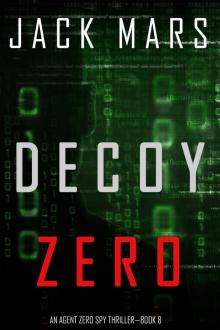 Decoy Zero
Decoy Zero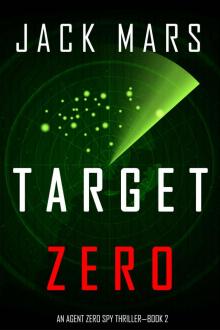 Target Zero
Target Zero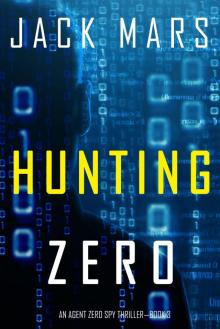 Hunting Zero
Hunting Zero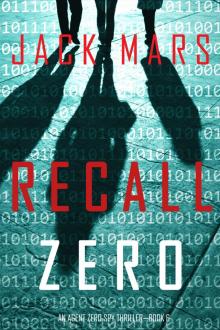 Recall Zero
Recall Zero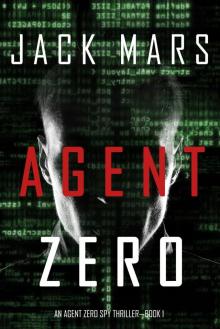 Agent Zero
Agent Zero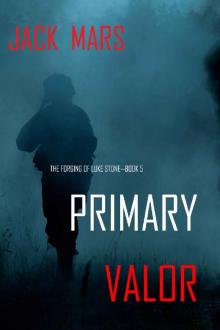 Primary Valor
Primary Valor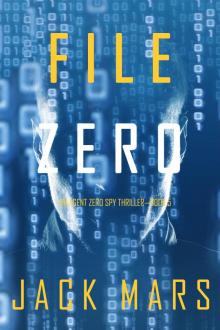 File Zero
File Zero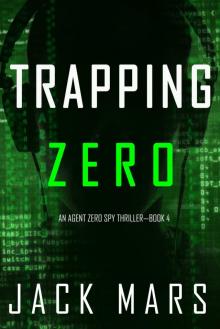 Trapping Zero
Trapping Zero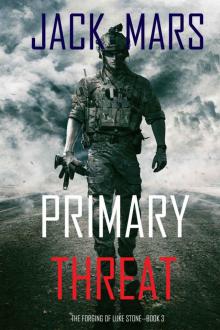 Primary Threat
Primary Threat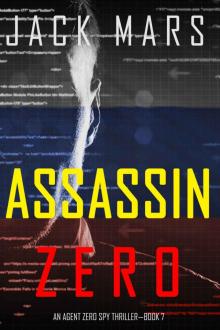 Assassin Zero
Assassin Zero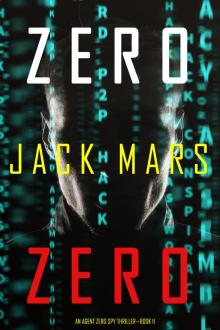 Zero Zero
Zero Zero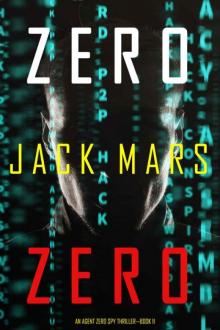 Zero Zero (An Agent Zero Spy Thriller—Book #11)
Zero Zero (An Agent Zero Spy Thriller—Book #11)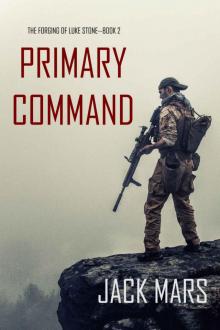 Primary Command
Primary Command![[Luke Stone 02.0] Oath of Office Read online](http://i1.bookreadfree.com/i/03/21/luke_stone_02_0_oath_of_office_preview.jpg) [Luke Stone 02.0] Oath of Office
[Luke Stone 02.0] Oath of Office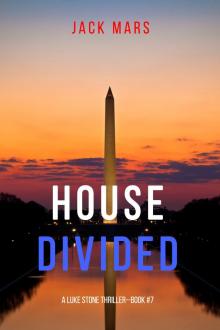 House Divided
House Divided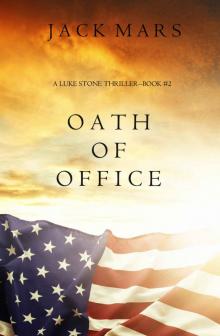 Oath of Office (a Luke Stone Thriller—Book #2)
Oath of Office (a Luke Stone Thriller—Book #2)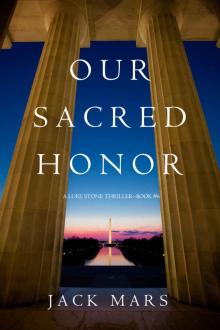 Our Sacred Honor (A Luke Stone Thriller—Book 6)
Our Sacred Honor (A Luke Stone Thriller—Book 6)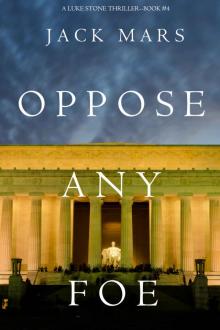 Luke Stone 04 - Oppose Any Foe
Luke Stone 04 - Oppose Any Foe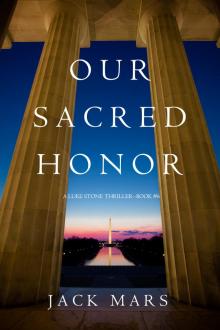 Our Sacred Honor
Our Sacred Honor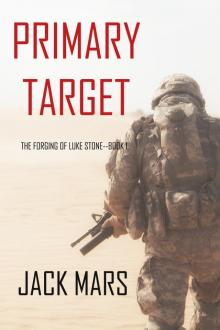 Primary Target
Primary Target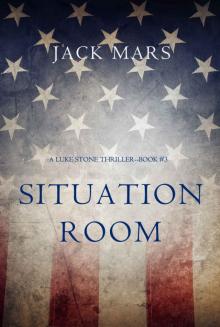 Luke Stone 03 - Situation Room
Luke Stone 03 - Situation Room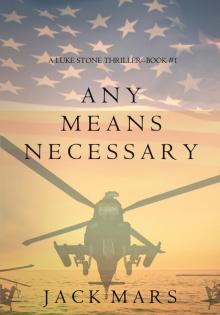 Any Means Necessary: A Luke Stone Thriller (Book 1)
Any Means Necessary: A Luke Stone Thriller (Book 1)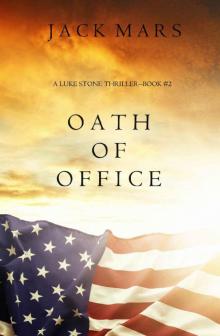 Oath of Office
Oath of Office